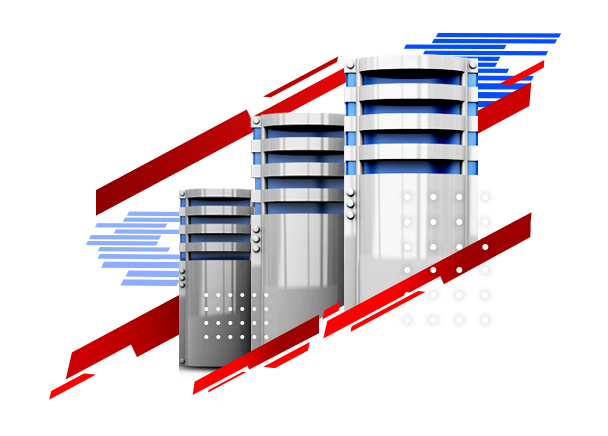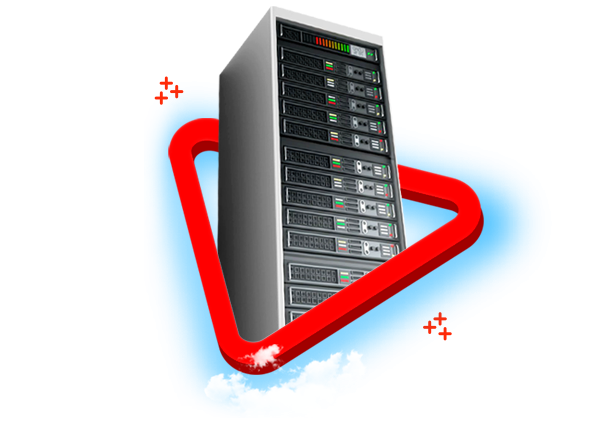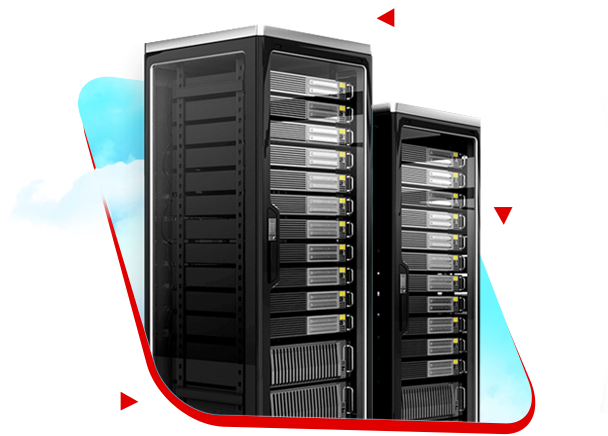
By now, you have probably come across a term like Cloud DNS on the pages of hosting companies or articles. But whether you are familiar with these concepts or not, you need to know cloud DNS in detail. Then get familiar with its capabilities to use it properly when necessary. At the beginning of this article, we will explain about Cloud DNS. Then we will present its features and benefits. Stay with us.
What is DNS?
Table of Contents
The Domain Name System (DNS) is a hierarchical naming model used on a distributed database between computers, services or any resource connected to the Internet or a private network. Most importantly, it translates human-readable domain names into numerical identifiers associated with network equipment. Thus, it allows devices to connect all over the world.
DNS is like a phone book for the network. Through DNS, a browser translates a domain name to the IP address of the server. Then it saves the information requested from the browser.
What is Cloud DNS?
Cloud DNS is a high-performance and flexible global domain name system service that publishes your domain name in a cost-effective way in Global DNS. In fact, Cloud DNS allows you to manage your zones and records without management. Publish DNS servers and software.
How does cloud DNS work?
The Domain Name System (DNS) is responsible for translating a domain name to a specific IP address. Therefore, the initiator client can load the requested Internet resources. As we said earlier, the domain name system works much like a phone book where users can search for the requested person and retrieve their phone number.
DNS servers translate requests for specific domains into IP addresses. They also control which server users access when they enter the domain name in their browser.
A brief history of cloud DNS
When the Internet started, it was easier for people to match specific computers to specific IP addresses. But this convenience didn’t last long as more devices and people joined the growing network. While it was still possible to type a specific IP address into a browser and access a website, users wanted website names that were easier to remember.
When the Internet began, Elizabeth Fineler of Stanford University personally assigned those names and addresses to a master list of every computer connected to the Internet. This text file was called hosts.txt.
As the Internet grew to millions of domains, it was no longer possible to continue this way. In 1983, USC researcher Paul Mocaptris set out to find a solution. His solution was to create a new system, which he called DNS, that remained based on the fundamental principles of Mockapetris. Today, DNS standards are maintained by the IETF in RFC 1035.
How cloud DNS works in Public Zone and Private Zone
How Cloud DNS works differs between public and private zones. Here’s a look at how to draw them.
Public Zone
Public zones are visible on the Internet and are where you publish your external programs. In these regions, Cloud DNS uses what are known as “authoritative name servers” to answer public queries. It doesn’t matter where these queries originate from. When you create a public zone, it allocates a set of half servers.
Private Zone
These zones give you an easy-to-manage internal DNS that focuses on virtual machines, load balancing, and other GCP resources. Private zones do not expose your original DNS data to the public Internet and remain on your network.
cloud_app_development Private zones can only be searched and assigned to specific projects by authorized Virtual Private Cloud (VPC) networks. You must specify a list of authorized VPCs that can search a particular zone when you create that zone. This prevents the access of hostile agents.
Cloud DNS features
Cloud DNS has its own set of features. This DNS ensures that you get a scalable, reliable and managed DNS service.
Anycast half server
Anycast name servers are those that can answer DNS queries. Google offers a global network of these to provide users with quick results for a query. Typically, the geographically closest server handles the query, but any location around the world allows for high availability and low latency for requests.

Automatic scaling and guaranteed availability
Cloud DNS scales multiple DNS zones and records to handle your request volume, even if you’ve created multiple records.
Zone and project management
This feature allows you to create managed zones for a project as well as add, delete and edit DNS records and monitor them as they are published as a DNS proxy.
Advantages of Cloud DNS
Here are the advantages and benefits of cloud DNS in a nutshell:
Didas DNS protection
Resilience against DNS DDoS attacks improves performance when using a cloud DNS provider that is more capable of absorbing an attack, scaling with an attack, or rapidly mitigating an attack. Cloud DNS providers have links with higher bandwidth, diverse resources and the ability to automatically increase resources based on transaction volume.
DNSSEC support
Domain Name System Security Extensions (DNSSEC) provides a cryptographic method for authenticating DNS records and helps protect against many common DNS security problems. Most companies have not yet adopted DNSSEC due to lack of familiarity with its configuration and benefits. A cloud DNS provider may automatically enable DNSSEC or make it much easier to implement DNSSEC and perform automatic key rotation.
More stability
Cloud DNS providers have fully redundant and geographically diverse networks and DNS server infrastructure that provide reliability and fault tolerance. Enterprises typically lack redundancy in their DNS infrastructure because they use DNS servers that do not share synchronized distributed zone information.
If your current DNS servers are not redundant, a cloud DNS service offers greater resilience against failure. Cloud DNS providers use anycast to create a highly scalable and redundant DNS infrastructure.
More security
Since DNS is an Internet service, the company must constantly monitor the security of this server, keep it modified, and ensure that it does not open to a DNS resolver. A cloud DNS provider constantly patches, scans, secures and monitors its redundant DNS servers.
last word
Simply put, Cloud DNS translates requests for domain names to IP addresses. Cloud DNS uses a global network of anycast servers to provide services to your DNS zone from different parts of the world.
In this way, it brings high availability and less delay to your users. Cloud DNS also increases your security against attacks such as Didas DNS. Also, its scalability improves DNS server performance
Frequently Asked Questions
- What are DNS records used for?
DNS was created to solve the problem that computers work best with numbers, not people. Its main function is to map names to numbers, like a phone book. As you probably already know, every device or host that connects to the Internet is identified by a number, in the form of an IP (Internet Protocol) address that looks something like this: 123.456.98.22.
- How do I find my DNS?
Open your Command Prompt from the Start menu (or type Cmd in the search field on your Windows taskbar). Next, type ipconfig /all in your Command Line and press Enter. Look for the field titled “DNS server”. The first address is the primary DNS server and the next address is the secondary DNS server.
- Does DNS help reduce ping?
Buying high-speed DNS for gamers has several benefits: servers closer to your physical location will improve your internet speed. Most importantly for gamers, proper DNS can reduce Ping, Packet loss and Jitter.
- What are the advantages of buying cloud DNS?
There are many advantages in purchasing cloud DNS. Benefits such as cost-effectiveness, scalability, flexibility and security, especially when it comes to absorbing DIDAS attacks, can be seen in purchasing this CDN.
- Should you use public or private DNS?
Public DNS is used for users to access websites like Google and Facebook, where there is no security other than typing the website name. Dedicated DNS is used to secure DNS requests. This helps you access websites from any DNS server you want while using a dedicated DNS server.
- Does private DNS make the internet faster?
The world’s fastest secure DNS services not only speed up your internet connection, but also make it harder for ISPs to track your web history.
- Is it safe to use private DNS?
For added security, you should make sure your DNS server supports DNS over HTTPS (DoH) and TLS (DoT).
CATEGORY:Blog











